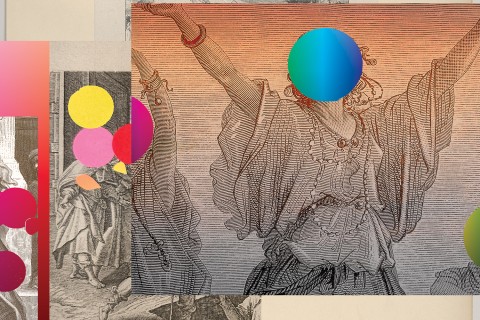The jester and the editor
In two weeks, Penguin Press will publish acclaimed television writer and producer Norman Lear’s autobiography, Even This I Get to Experience. Lear’s appreciation for the many lives he has self-admittedly lived is evident in the title and echoed by those who have provided the book with its pre-published reception including Bill Clinton, Ariana Huffington, co-writer of the Book of Mormon Trey Parker, Bill Moyers, and former “meathead” Rob Reiner. Not only does this lineup speak to the many legacies of Lear’s television programming, which included All in the Family and Maude, but it also paints a brief yet precise picture of Lear’s ongoing political allegiances and spiritual tendencies formed and developed since leaving television in the late 1970s. In a spiritual but not religious age, Lear’s transition from television icon to interfaith nonprofit organizer may be largely unknown, but it is anything but insignificant in the history of America’s recent religious past as a life lived in the spirit.
By the early 1980s, Lear had begun to seriously consider applying his creative talents to a different venue in cultivating national conversations about the day’s most pressing social issues. His vision of a tolerant, religiously diverse America began to take shape first through his television writing and later through his educational impulses to facilitate conversation through his non-profit organization People for the American Way. His first effort to establish himself politically began with the unrealized feature film Religion starring Martin Mull and Fred Willard. Lear was fortuitously encouraged to explore a different if not all too familiar venue for his observations about American public life and the impending threats to its well-being. The catalyst for Lear’s shift in strategy was televangelist Jimmy Swaggart’s strident request to his viewers to pray for the removal of a Supreme Court justice. Left speechless, Lear decided to pursue alternative means of getting the word out about protecting the airwaves from extremist and at times anti-Semitic statements made in public. He sought the counsel of countless political and religious figures of the Protestant mainline across the nation, which also included Catholic and Jewish participants including Theodore Hesburgh of Notre Dame. Regardless of geography or political persuasion, virtually every group on Lear’s interfaith tour suggested contacting one person in particular for his religio-political needs. This person was both educationally gifted and ecumenically sturdy in times that were otherwise quite politically stringent. Arguably the public intellectual of the 1980s, this person proved to be an invaluable resource for Lear as he ventured beyond the living room into the public sphere of deliberation and argumentation. That individual was a former senior editor of The Christian Century, Martin Marty.
As Elesha J. Coffman argues in The Christian Century and the Rise of the Protestant Mainline, Marty was instrumental in deciding how the journal would vie for dominance within the “contested center” that was American Protestantism in the 1950s. Like Lear, Marty considered evangelists like Billy Graham “intruders in the crowded center” who relied on “slick promotional methods” for much of their evangelistic successes. Marty stood at the forefront of an ongoing confrontation over who would lay claim to the title of “religion’s intellectual vanguard” in post-war America—one that continues to play out across television screens and newspaper headlines the country over.
Once Lear began his own work with PFAW, an organization designed to educate by combatting the seemingly invasive media-savvy agenda of the newly formed Christian Right, he relied heavily on Marty for his knowledge of history and his appreciation for religious diversity and civility in American public life. In addition, Marty served as a sounding board for many of Lear’s initial definitions of PFAW’s founding values, including the separation of church and state and first amendment rights. The two men—one comedic, one pastoral—went on to found PFAW in one of the most religiously contentious decades in American political history. They also forged an indelible friendship that continues to yield insights into the nature of worship as gratitude. Lear remains grateful to have experienced as much as he has—largely thanks to individuals like Martin Marty. If nothing else, their friendship speaks to the fractured character of American public life since the 1960s, one that has spawned both great achievement and violence in the name of understanding.
Our weekly feature Then and Now harnesses the expertise of American religious historians who care about the cities of God and the cities of humans. It's edited by Edward J. Blum and Kate Bowler.





